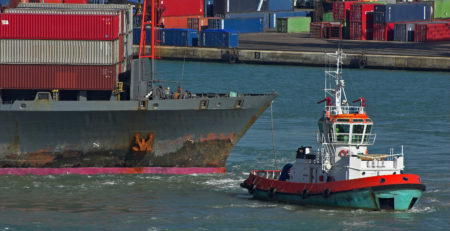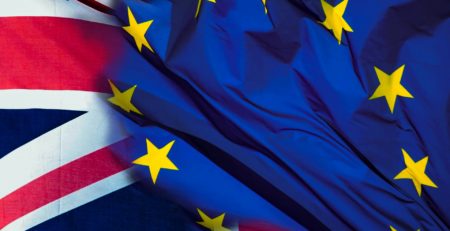Why Britain’s new Turkish trade deal moves the country further away from recognising the Armenian Genocide
The recent trade agreement between Britain and Turkey has been hailed a huge success by the country’s President Recep Tayyip Erdogan. It is no surprise that Turkey’s strongman is all too happy to accept such a lucrative deal in light of his country’s faltering economy. However, this new agreement demonstrates a willingness to place economic gain over a considered and ethically just foreign policy option in post-Brexit “Global Britain”. Unfortunately, a strengthening of the United Kingdom’s commercial ties with Turkey moves Britain further away than ever from recognising the Armenian genocide.
Contextualising the Armenian Genocide
In 1915, the Ottoman regime began the systematic deportation and extermination of its Armenian population. This genocide, largely driven by a policy of “Turkification” by the Young Turk government, led to the deaths of an estimated 1.5 million Armenians in the Ottoman Empire. The organised expulsion of Armenians from their homes into concentration camps or on death marches into the Syrian desert, has come to define our modern understanding of genocide. It was this annihilation that moved Raphael Lemkin to define a mass, systematic extermination of a people as such. When the 1948 Genocide Convention was adopted by the UN, Lemkin’s definition was made international law.
Despite innumerable eyewitness testimonies and documentary evidence that attest to this atrocity, the Turkish Government refuses to acknowledge the role of its forebears in the systematic suppression of the Armenian people. Instead, it denies and wholeheartedly rejects the fact that the killing of the Ottoman Empire’s Armenian population could ever be considered a genocide. Rather they argue that this crime against humanity was merely a by-product of the Great War. The conscious erasure of Turkey’s historic perpetration of the Armenian genocide has only continued to solidify under Erdogan’s regime.
The events of 1915 were brought to the attention of an international audience during the war and evoked wide-spread condemnation from world powers. The United Kingdom’s outraged response to this crime was largely fuelled by its growing ideological commitment to upholding human rights, a humanitarian vision shared by other powers including France and the then still idealistic revolutionary Russia. Despite the claim of British Solicitor General Ernest Pollock in 1919 that the crimes committed against the Armenians of the Ottoman Empire should be prosecuted by a British war tribunal, little was done. In 1923 the Treaty of Lausanne determined the post war relationship between the new Republic of Turkey and the Allied powers. Tragically, it included a clause which granted immunity to Turkish crimes committed during the conflict, including the Armenian genocide.
Britain’s Relationship with the Armenian Genocide
Since the inception of the Genocide Convention in 1948, the United Kingdom has never officially recognised the crimes perpetrated against the Armenian people as a genocide.
The prominent human rights lawyer Geoffrey Robertson QC obtained historical foreign office documents dating back to the 1990s, following a freedom of information request. An internal government memorandum circulated to ministers prior to a House of Lords debate in 1999 concerning the status of the Armenian genocide stated that whilst “Her Majesty’s Government was open to criticism in terms of the ethical dimension”, it was acknowledged that “recognising the genocide would provide no practical benefit to the UK”. Robertson described it as cynical and tantamount to genocide denial. Regrettably the British governments’ standpoint has not changed in the last twenty years.
One only needs to look to Britain’s strategic and commercial interest in Turkey to see why such an unethical policy has been pursued. The UK is Turkey’s second largest export market and its fifth largest foreign investor. This trade relationship has historically involved the substantial export of arms from the UK to Turkey as well. According to the Campaign Against the Arms Trade, The United Kingdom had exported £1.3bn in arms to Ankara since 2013. In 2017, the then Prime minister Theresa May agreed a £100 million deal for BAE systems to develop Turkey’s first indigenous fighter jet.
In 2019 Britain suspended its arms export licenses after increased Turkish involvement in Syria. However, this rather limp attempt stopped short of any serious economic sanctions and all previous arrangements, including the BAE systems contract, remain unaffected. Turkey also acts as a strategic partner and the Incirlik Air Base, serves as a key deployment location for the RAF and USAF in the Middle East. In the context of this commercial and strategic relationship, it is regrettable that the British government sees genocide avoidance as a matter of practical expedience in the region.
Many Global powers have taken the progressive step toward acknowledgment. European nations including France, Switzerland and Portugal have made particularly strong efforts to recognise the human rights violations committed against the Armenian people during the Great War. In 2019, the United States House of Representatives passed a landmark resolution to officially recognise the Armenian genocide. Britain’s cynical stance not only diverges from many European and World powers but stands in particularly stark contrast to the devolved governments of Wales and Scotland which have both officially recognised this crime against the Armenian people.
The Implications of a Post Brexit Deal
The recent agreement between London and Ankara took effect on January 1st with an estimated value of £18 billion in additional trade. In doing so, Brexit Britain has elected to economically support a regime which openly persecutes its opposition and continues a xenophobic campaign of suppression against its Kurdish minority. Turkey benefits from a trade surplus with the UK, exporting far more than it imports; in this position, Westminster had a good deal of negotiating power with which to force Ankara to check its human rights abuses. The pressure to make a demonstratable success of Johnson’s vision for “Global Britain” appears to have come at the expense of the UK’s values
Contrast this against the position of the EU on the matter. Despite its customs union with Turkey, agreed in 1995, the European Union has since blocked Turkish attempts to join the Union, criticising the regime’s human rights violations and abuses of law. As a consequence, the EU has also refused to modernise this customs agreement. It is hard to miss the irony of a closer post Brexit relationship between the UK and Turkey, given much of the vitriol of the leave campaign included a great deal of scaremongering regarding Turkish entrance to the EU. The situation in Turkey is problematic and greater democratic change is unlikely to occur when Britain, amongst others, continues to support this de facto authoritarian regime.
Those who argued so vehemently for Brexit promised a new “Global Britain” that would allegedly uphold the values of liberal democracy. For many, leaving the European Union was an opportunity to supposedly build a constructive and progressive foreign policy. However, much like its reaction to the Armenian humanitarian crisis of the early 20th century, the British government promises much, but delivers very little.
Evidently the British government will continue to place economic and political gain over any real ethical concern. Whilst many world leaders came out to vocally condemn Turkey’s implicit role in the recent Nagorno-Karabakh conflict, the UK remained conspicuously silent. Regrettably, if recent history is anything to go by, a deeper economic and political commitment to Ankara moves Britain further away than ever from recognising the Armenian genocide.
For more information about the Armenian Genocide: https://www.armenian-genocide.org/












